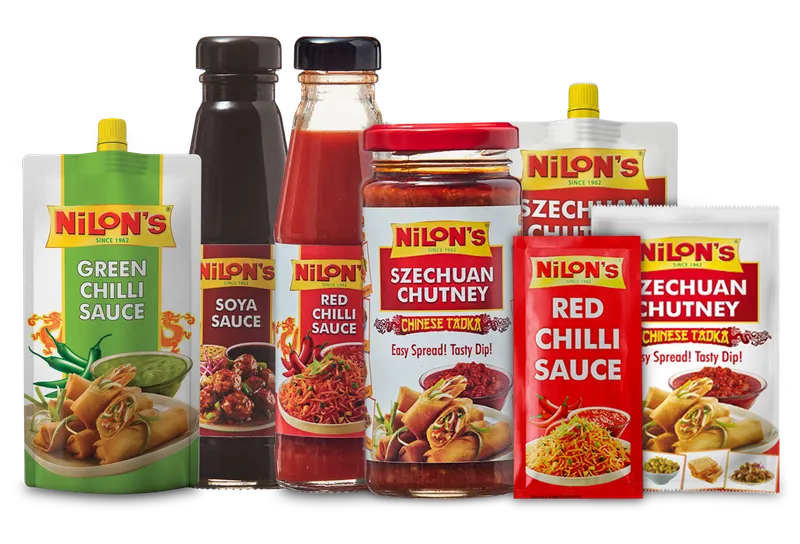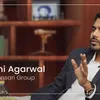From Jalgaon to 3 lakh plus outlets: The story of Nilon's
Jalgaon-based Nilon’s, founded in 1962 by Suresh B Sanghavi, is a processed food company whose products are present across three lakh outlets in India. It also exports to countries like Japan, the US, the Middle East and Europe.
According to a report by Statista, India’s fast-moving consumer goods (FMCG) market was worth $110 billion in 2020. The report revealed that this number has tripled since 2012 and going forward, the market is slated to grow by 100 percent to reach $220 billion in 2021.
, founded in 1962, is one such FMCG company that has seen this segment evolve to become a $110 billion industry, while surviving and staying relevant all these years.
Based out of Jalgaon district in Maharashtra, Nilon’s was founded by Suresh B Sanghavi. As he belonged to a family of farmers, Suresh's older brother encouraged him to explore other avenues apart from farming when he completed his education, narrates Suresh’s son and second-generation entrepreneur, Dipak Sanghavi. Dipak is today the Managing Director of Nilon’s.
In a chat with SMBStory, Dipak speaks about the initial days of the business in the late 1960s and 1970s, and recalls how his father turned their home kitchen into a manufacturing unit of sorts, and the dining table into a lab where all the ingredients were tried and tested. He also recounts how the company experienced a transformation of sorts when he joined full time in 2004, mainly by focussing on the three mainstays - distributors, retailers, and customers.
The early days
Back in the 60s, the first product that Suresh launched was a squash concentrate, followed by jams, tutti-fruity, roasted vermicelli, pickles, canned fruit and more.
“We had two cars at that time. Whenever the products were ready, my father and uncle would load one car each and go in different directions to sell the produce in the markets,” reminisces Dipak.
Soon the company set up three manufacturing units of its own and even started exporting to Japan.
This went on until Suresh’s untimely death in 2001. Dipak, a student at the Indian Institute of Management, Ahmedabad at the time, took the reins of the business partially along with his uncle.

Designing a sound strategy
Recalling those days, Dipak says he would work part-time at the office whenever he was not attending his classes. “The business was being run mostly by a set of professionals who had been hired by my father and uncle.”
When he formally joined the business in 2003, Dipak’s young ideas did not see great response from the already established team, and the attitude of his seniors would often dampen his spirits. “Every time I suggested an idea, I was shot down saying that it was something already tested and wouldn’t work.”
Dipak says he realised that he would have to push harder to find his feet, and therefore, studied the business in depth all through 2003. In 2004, he started making some changes.
One of the first things he did was hire professionals who had exposure to international brands. He also tried to introduce a ‘corporate culture’ of sorts within the organisation. “Before 2004, every employee would leave at 6 pm sharp. Once I came in, I ensured that nobody left till the day’s work was done.”
“In 2004, our turnover was around Rs 8 crore, which was enormously insignificant in a market like FMCG,” says Dipak.
He then started taking a step-by-step approach by focussing on the three key stakeholders - distributors, retailers and customers.
Between 2004-2008, the team tried to onboard as many distributors as possible, who in turn expanded their reach. This helped in scaling Nilon’s B2B (Business-to-Business) business, which contributed more than half to the total revenues.
Second, Nilon’s aim shifted to retail post 2008. This was also a time when the company raised investment by selling a share of its equity to late entrepreneur Kirit Pathak, according to Dipak.
Nilon’s also expanded and diversified into other categories. Explaining this strategy, Dipak says, “Until 2008, we were predominantly selling on-the-table items such as pickles, ketchup, etc. Gradually, we expanded to items such as ginger-garlic paste, beverages, etc., to make more of our items available at retail stores and kiranas.”
By working on the distributor and retailer aspects, the company was able to scale not just in India, but also started selling in the US, Europe, and the Middle East.
Tapping into Indian market’s potential
Despite a network of 3,500 distributors and presence across three lakh outlets, Dipak says that there is still immense potential in the Indian market. The company’s focus is not on exports but continues to be on penetrating deeper into the Indian market. Nilon’s counts Kissan, Britannia, HUL, ITC, Bl Agro, Pansari Group, Dabur, etc as competition.
“India has a population of 1.3 billion who eat three meals a day, so the opportunity to tap is huge,” quips Dipak.
But despite being an Indian brand that understands the pulse of the audience, he says that this market is more difficult because it is highly unorganised. “It is easier to break into the international market because of it being organised.”
This is where Dipak says it is leveraging technologies like data analytics in manufacturing to serve its customers better and gain a deeper insight into the market. “Data helps us understand how we can expand our reach and presence, and more.”
In the next five years, Nilon’s aim is to become a Rs 1,500 crore company. To achieve this, it plans to expand its reach to more than 10 lakh outlets and invest in marketing and advertising (recently, it onboarded actor Pankaj Tripathi as a brand promoter).
Believing that online is the way forward, the brand also launched its D2C (Direct-to-Consumer) vertical by launching its own website and getting listed on platforms such as Amazon, Flipkart, etc more than six months ago.
YourStory’s flagship startup-tech and leadership conference will return virtually for its 13th edition on October 25-30, 2021. Sign up for updates on TechSparks or to express your interest in partnerships and speaker opportunities here.
For more on TechSparks 2021, click here.
Edited by Anju Narayanan









